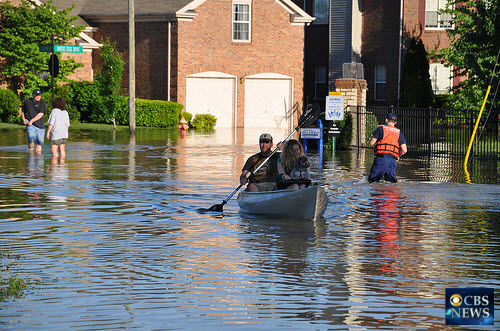 If the flooding caused by Hurricane Katrina in New Orleans was any indication, Nashville real estate prices will rise in the coming months. I realize that this statement may appear counterintuitive in the wake of such devastation, but the underlying fundamentals of a capital market remain unaffected, the simple laws of supply and demand dictate a housing shortage on the horizon.
If the flooding caused by Hurricane Katrina in New Orleans was any indication, Nashville real estate prices will rise in the coming months. I realize that this statement may appear counterintuitive in the wake of such devastation, but the underlying fundamentals of a capital market remain unaffected, the simple laws of supply and demand dictate a housing shortage on the horizon.
According to the Brookings Institute’s One-Year Review after Hurricane Katrina, “Housing is less affordable as rent prices in the region have increased by 39 percent over the year and home sale prices have spiked in suburban parishes.” Specifically, the Brookings Institution concluded that, “Home prices, measured by their purchase price, have increased in East St. Tammany and West Jefferson, by 6 percent and 23 percent, respectively since last August. Coupled with the healthy pace of home buying, it is evident that these suburban areas have become the favored quarter for households. Home prices have not increased in the most damaged parts of the metro area…rents have also increased for the region as a whole since last August. A two-bedroom apartment now rents for an average of $940 a month, an increase of 39 percent since last year. Rents for all other apartment sizes have risen at the same pace.”
It is difficult to correlate the above statement directly with Nashville, but if recent history is any lesson, I would expect home prices to fall significantly in the most affected areas of Nashville like the Pennington Bend area near Opryland and the River Plantation and Riverwalk areas of Bellevue. However, there are several large rental complexes very near those areas that may allow displaced residents to temporarily remain close to home. This is an important fact, since the further loss of consumer spending in those specific areas would magnify the loss in real estate prices through population attrition.
Which Areas of Nashville will Benefit
If I had to make an educated guess, I would say that the slightly more affordable areas just outside of Bellevue, but on the Nashville side of town will benefit from the flood. West Meade, Northwestern Brentwood and Northern Franklin may see a marked increase in housing purchase demand while Eastern Bellevue, Green Hills, Hillwood and West End may see an increase in rental demand. Unquestionably, downtown Nashville itself as well as the Cool Springs area will experience higher than usual demand as displaced persons attempt to secure a rental or permanent residence closer to where they work.
According to the Wall Street Journal, another interesting phenomenon post Hurricane Katrina, was the insurgence of interest from real estate speculators. In doing research for this story, there actually appears to be a pattern of real estate investing by professionals in areas that have suffered significant housing loss. If one can secure an undamaged property for some percentage less than just prior to the weather event, there is almost certain profit through a resale or long term rental strategy.
Differences Between Katrina and the Nashville Flood
There are a few major differences of note between Hurricane Katrina and what is becoming known as “the great 500 year flood of Nashville”. The most obvious is that Katrina caused a much larger population displacement, the hurricane actually pushed hundreds of thousands of New Orleans residents out of the State of Louisiana. This is a very important difference. New Orleans lost all benefit of those residents’ consumer spending. This is not the case in Nashville where displaced persons are finding places to stay within the greater Nashville area.
Hurricane Katrina was a wind event as well as a flood event whereas the Nashville flood is a simple flood event. This is another important distinction as we have not experienced a proportionate number of power lines down, roofs ripped off or general destruction that is associated with wind events. This will lead to the faster restoration of public utilities and allow reconstruction to begin much, much faster.
Nashville Real Estate Outlook
It is true that Nashville is in the beginning stages of scratching and clawing its way out of the national economic downtown. It is also true that jobs and general optimism had also begun to return to this area. For the supporting reasons above, I am predicting that the resulting economic impact from the flood will cause the Nashville real estate market to recover faster than if the flood had not occurred. The storm has caused the total inventory of homes to decrease more than the resulting demand. While this affect many only last 6-12 months, it may seamlessly blend into a recovering national economy.


